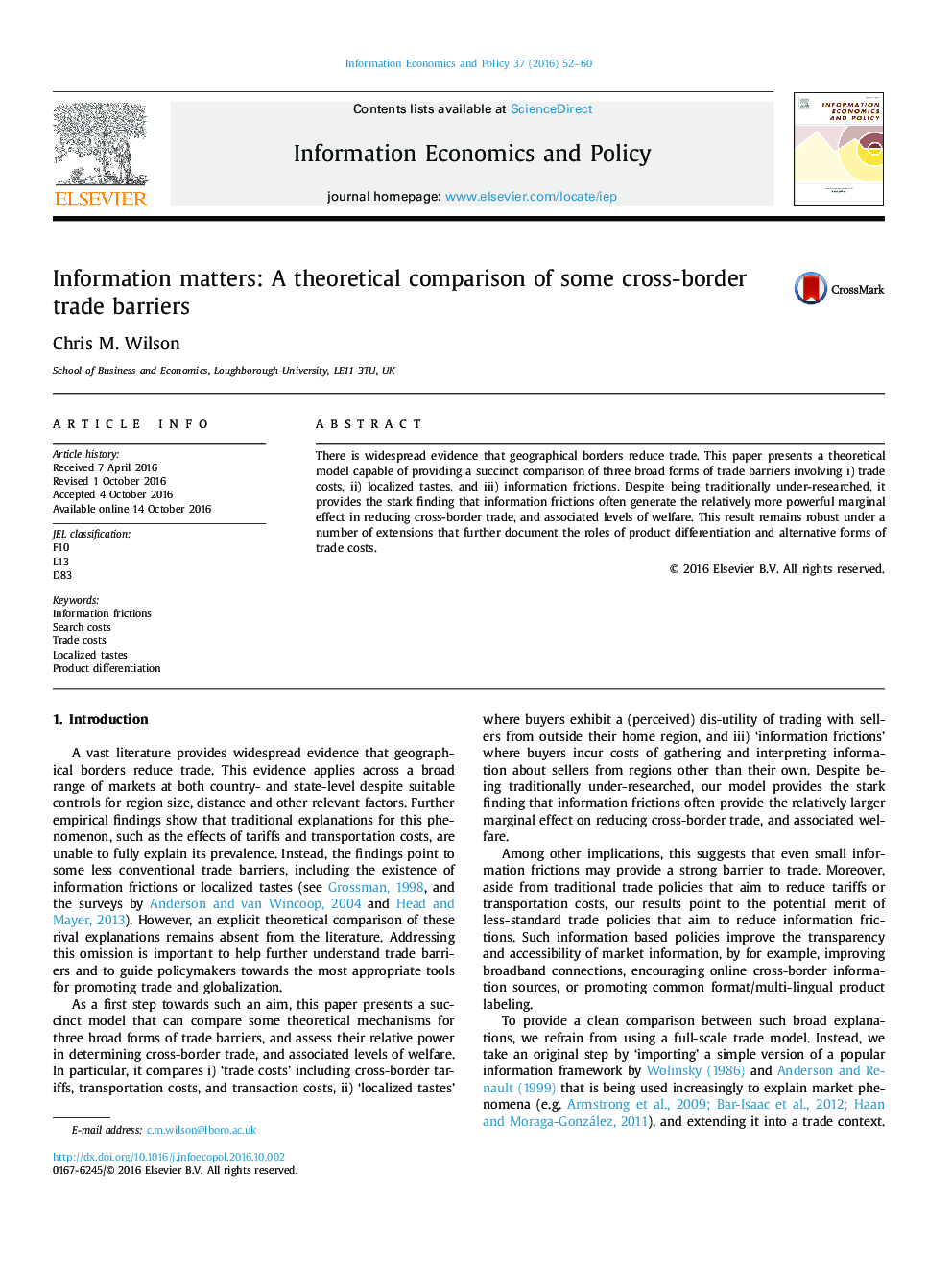| Article ID | Journal | Published Year | Pages | File Type |
|---|---|---|---|---|
| 5075670 | Information Economics and Policy | 2016 | 9 Pages |
Abstract
There is widespread evidence that geographical borders reduce trade. This paper presents a theoretical model capable of providing a succinct comparison of three broad forms of trade barriers involving i) trade costs, ii) localized tastes, and iii) information frictions. Despite being traditionally under-researched, it provides the stark finding that information frictions often generate the relatively more powerful marginal effect in reducing cross-border trade, and associated levels of welfare. This result remains robust under a number of extensions that further document the roles of product differentiation and alternative forms of trade costs.
Related Topics
Social Sciences and Humanities
Business, Management and Accounting
Management of Technology and Innovation
Authors
Chris M. Wilson,
